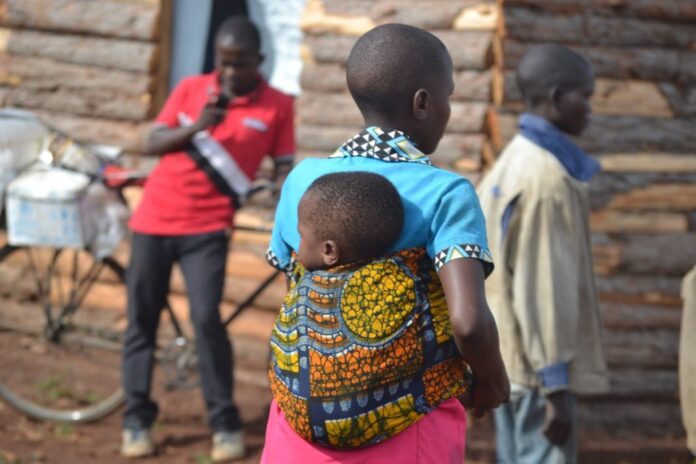Uganda Demographic Health Survey (UDHS, 2024), statistics indicate that Uganda’s overall teenage pregnancy rate is 25%, the highest in East Africa since 2011.
Teenage pregnancies continue to be a major social problem that affects young girls, their families, and entire communities. Girls in Uganda are either pregnant or have already given birth before the age of 19.
Despite government efforts, nearly 50% of teenage girls are at risk of sexual abuse and pregnancy each year, leading to alarming outcomes for both the girls and the nation.
These high teen pregnancy rates have health impacts contributing to the leading cause of death and disability among Ugandan women 15 to 19 years old: complications of pregnancy, unsafe abortions, and childbirth in a National Institute of Health (NIH) study.
Young mothers are highly exposed to health risks during childbirth due to their underdeveloped bodies, which are most likely to experience complications like obstetric fistula or even maternal death.
The cost implications for a teenage mother and her unborn baby till the time after birth not only strain the country’s already limited resources but also deprive the nation of future skilled human capital, as teenage mothers often struggle to return to school due to stigma and the demands of motherhood affecting their educational and employment opportunities.
The National Planning Authority estimates that over Shs645 billion is required annually to provide healthcare for teenage mothers and education for their children.
With the ongoing myths and pressures surrounding child marriage and wealth generation, the community and caregivers are giving up the girl child for the lesser cause and endangering their futures.
According to a 2024 UNICEF study, 15% of Ugandan girls marry by 15, 67% are sexually abused, 66% have new HIV infections, and only 24% are enrolled in secondary schools, highlighting the educational gap caused by early pregnancies and marriages.
Ugandan teenage pregnancies are largely attributed to poverty, cultural norms, lack of education, and inadequate reproductive health services, often leading to early marriage and unplanned pregnancies.
Traditional customs, peer pressure, sexual violence, and lack of comprehensive sex education contribute to child marriage in some communities, causing financial burdens.
Uganda is collaborating with non-governmental organizations, local governments, and community leaders to tackle teenage pregnancies through education, advocacy, and health services despite challenges.
The Girls Empowerment Movement and community dialogues can promote accurate reproductive health information and address myths, thereby transforming cultural attitudes towards child marriage.
Youth-friendly Health services like Marie Stopes Uganda should be supportive of adolescents, ensuring access to contraceptives and confidential counseling, including mobile clinics in rural areas to bridge gaps in healthcare accessibility.
Uganda’s government is implementing initiatives like “Back to School” to empower young mothers’ post-childbirth, but challenges remain due to limited resources and cultural practices.
Collaboration between government, civil society, and international partners is crucial for implementing policies that address teenage pregnancies in Uganda. This includes providing scholarships, enforcing child marriage laws, and increasing rural school investment.
The implementation of the pending marriage bill 2024 tabled by the Tororo district woman member of Parliament, Sarah Achieng Opendi, will clearly crack down on the culprits and movers of the child marriages.
“We must protect our children from exploitation. This bill seeks to ensure that child marriages are completely eradicated,” Opendi emphasized.
Some proposals in a section of the bill capitalize on criminalizing child marriages and focus on the protection of minors. Clause 101 stipulates a 10-year jail sentence for anyone who organizes, conducts, or witnesses a marriage involving a minor or marries someone below the age of 18.
By empowering young girls with knowledge, resources, and opportunities, Uganda can break the cycle of poverty and early motherhood that hinders its progress.
With collective efforts from the government, NGOs, community leaders, and international partners, there is hope for a future where every girl can thrive, contribute to her community, and realize her full potential.
Resolving this issue is not merely a matter of policy, it is also morally necessary to build a more equitable and healthy society for all.















